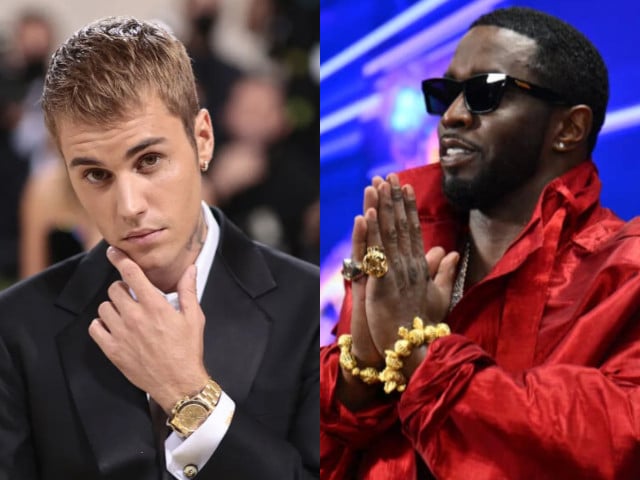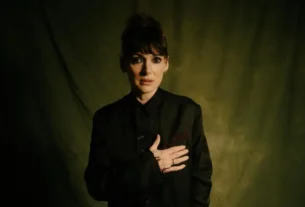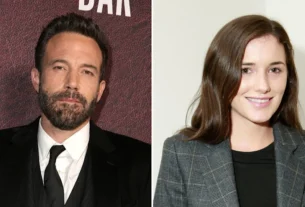Justin Bieber, one of the most successful pop stars of his generation, is no stranger to media attention. The singer has grown up under the spotlight, experiencing both the highs of worldwide fame and the dark side of the music industry. Recently, Bieber has reportedly opened up about a particularly difficult chapter of his early career, referring to a ‘nightmare experience’ involving the hip-hop mogul Sean “Diddy” Combs. This revelation sheds new light on the pressures Bieber faced as a young star and highlights the sometimes troubling dynamics of mentorship in the entertainment industry.
Justin Bieber’s Rise to Fame: A Brief Background
To fully understand the significance of Bieber’s comments, it’s essential to revisit his meteoric rise to fame. Discovered at just 13 years old by music producer Scooter Braun through his YouTube videos, Justin Bieber’s ascent to global stardom was swift and overwhelming. By the age of 16, he had released his debut album My World 2.0, which included his breakout hit “Baby.” Bieber quickly became a household name, amassing millions of fans—known as “Beliebers”—and securing his position as one of pop music’s biggest stars.
However, Bieber’s early years in the industry were far from smooth. The pressures of fame, combined with the scrutiny of the media and public, weighed heavily on the young artist. Over the years, Bieber has been candid about the struggles he faced, including battles with mental health, substance abuse, and feeling exploited by those around him.
The Reported ‘Nightmare Experience’ with Diddy
While Bieber has previously shared stories about the challenges he faced during his rise to fame, recent reports suggest that one of the most difficult periods involved his interactions with Sean “Diddy” Combs. Diddy, a music industry heavyweight and influential figure in hip-hop, has mentored numerous young artists throughout his career. However, Bieber has allegedly described his time working with Diddy as a ‘nightmare experience.’
Though specific details about this experience have yet to be fully disclosed, sources close to the situation suggest that the nature of Bieber’s relationship with Diddy may have involved intense pressure, unrealistic expectations, or uncomfortable situations. For a young star like Bieber, who was still navigating the complexities of fame, these interactions may have exacerbated the emotional and psychological toll of his early career.
A Closer Look at the Music Industry’s Mentorship Dynamics
Bieber’s reported comments about Diddy shine a light on a broader issue within the music industry: the mentorship dynamic between established industry figures and young artists. In theory, mentorship is meant to guide and support emerging talent, helping them navigate the challenges of the business. However, the reality is often more complicated.
Many young artists, like Bieber, enter the industry with little knowledge of its inner workings. They rely on their mentors not only for professional guidance but also for emotional and psychological support. Unfortunately, this imbalance of power can sometimes lead to exploitation, with mentors placing unreasonable demands on their protégés or pushing them into situations they’re not prepared for.
In Bieber’s case, his rapid rise to fame likely left him vulnerable to these pressures. The singer has previously spoken about feeling overwhelmed by the constant demands of his career, from relentless touring schedules to the pressure to maintain his public image. It’s possible that his interactions with Diddy—and other industry figures—contributed to these feelings of burnout and emotional exhaustion.
Bieber’s Struggles with Mental Health and Fame
Bieber has never been shy about discussing his struggles with fame. In interviews, documentaries, and social media posts, he has been open about the toll that early stardom took on his mental health. In a 2020 interview with Billboard, Bieber admitted that he had suffered from depression and anxiety throughout much of his teenage years and early 20s.
“I was surrounded by people who wanted things from me, and I didn’t know how to say no,” Bieber said. “That’s when my mental health started to deteriorate.”
His experiences with figures like Diddy likely played a role in shaping his outlook on the industry. Bieber has mentioned that, as a teenager, he often felt like he was being pulled in different directions by people who wanted to benefit from his success. The intense scrutiny of the media only added to the pressure, as Bieber’s every move was documented and criticized by the public.
Bieber’s openness about his mental health struggles has been praised by fans and mental health advocates alike. By sharing his story, Bieber has helped to break the stigma surrounding mental health issues, particularly in the entertainment industry.
Diddy’s Role as a Mentor: Successes and Controversies
Diddy, whose real name is Sean Combs, is a multifaceted entertainment mogul. Over the years, he has built a reputation not only as a successful artist and entrepreneur but also as a mentor to young talent. Some of the artists he has helped guide include Usher, Biggie Smalls, and Mary J. Blige, all of whom have enjoyed remarkable careers.
However, Diddy’s approach to mentorship has not been without controversy. While many of his protégés have gone on to achieve success, others have spoken out about the intense pressures they faced under his guidance. Diddy has been known for his perfectionism and high expectations, which, while driving some to success, may have left others feeling overwhelmed.
It’s worth noting that Diddy has not yet responded to the reports about Bieber’s comments. Whether or not he will address the situation remains to be seen. However, the story has sparked discussions about the responsibilities of industry mentors and the need for better protections for young artists.
Lessons Learned: The Importance of Mental Health Support in the Industry
Bieber’s reported ‘nightmare experience’ with Diddy highlights the importance of mental health support in the entertainment industry. As more and more artists come forward with stories of burnout, exploitation, and mental health struggles, there has been a growing push for industry reform.
Organizations like MusiCares and the Music Industry Therapy Collective (MITC) have emerged to provide support and resources to artists struggling with mental health. Additionally, many artists, including Bieber, have used their platforms to advocate for better treatment and support for young talent entering the industry.
In recent years, Bieber has made significant strides in prioritizing his mental health. He has taken breaks from touring, sought therapy, and leaned on his faith and close relationships for support. His wife, Hailey Baldwin Bieber, has also been a key figure in his journey toward healing, often accompanying him to therapy sessions and supporting him through difficult times.
Moving Forward: Bieber’s Redemption and New Perspective
As of now, Justin Bieber is in a much healthier place, both mentally and physically. After years of struggling with the pressures of fame, he has found a renewed sense of purpose and balance in his life. His 2020 album Changes marked a turning point for the singer, as it reflected his personal growth and commitment to self-care.
In interviews and social media posts, Bieber has expressed gratitude for the lessons he has learned throughout his career, both the good and the bad. He now sees himself as a stronger, more self-aware person who is better equipped to handle the challenges of fame.
Though his reported experience with Diddy may have been a painful chapter in his life, it has undoubtedly shaped the person Bieber is today. By breaking his silence on this ‘nightmare experience,’ Bieber continues to share his truth with his fans, offering insight into the darker side of the entertainment industry and the importance of prioritizing mental health.
Conclusion: A Cautionary Tale for the Industry
Justin Bieber’s reported comments about his ‘nightmare experience’ with Diddy serve as a cautionary tale for the music industry. While mentorship can be an invaluable tool for young artists, it’s crucial that these relationships are built on trust, respect, and mutual support. The pressures of fame are already immense for young stars, and the added weight of unrealistic expectations or unhealthy power dynamics can be damaging.
As more artists come forward with their stories, the industry must take steps to create a safer, more supportive environment for emerging talent. For Bieber, sharing his experiences is just one way he’s working to bring about change. By speaking out, he hopes to inspire others to prioritize their well-being and advocate for themselves in an industry that often prioritizes profits over people.
For now, fans and media alike will be waiting to see if Diddy responds to the claims, and what this revelation means for both men moving forward.





